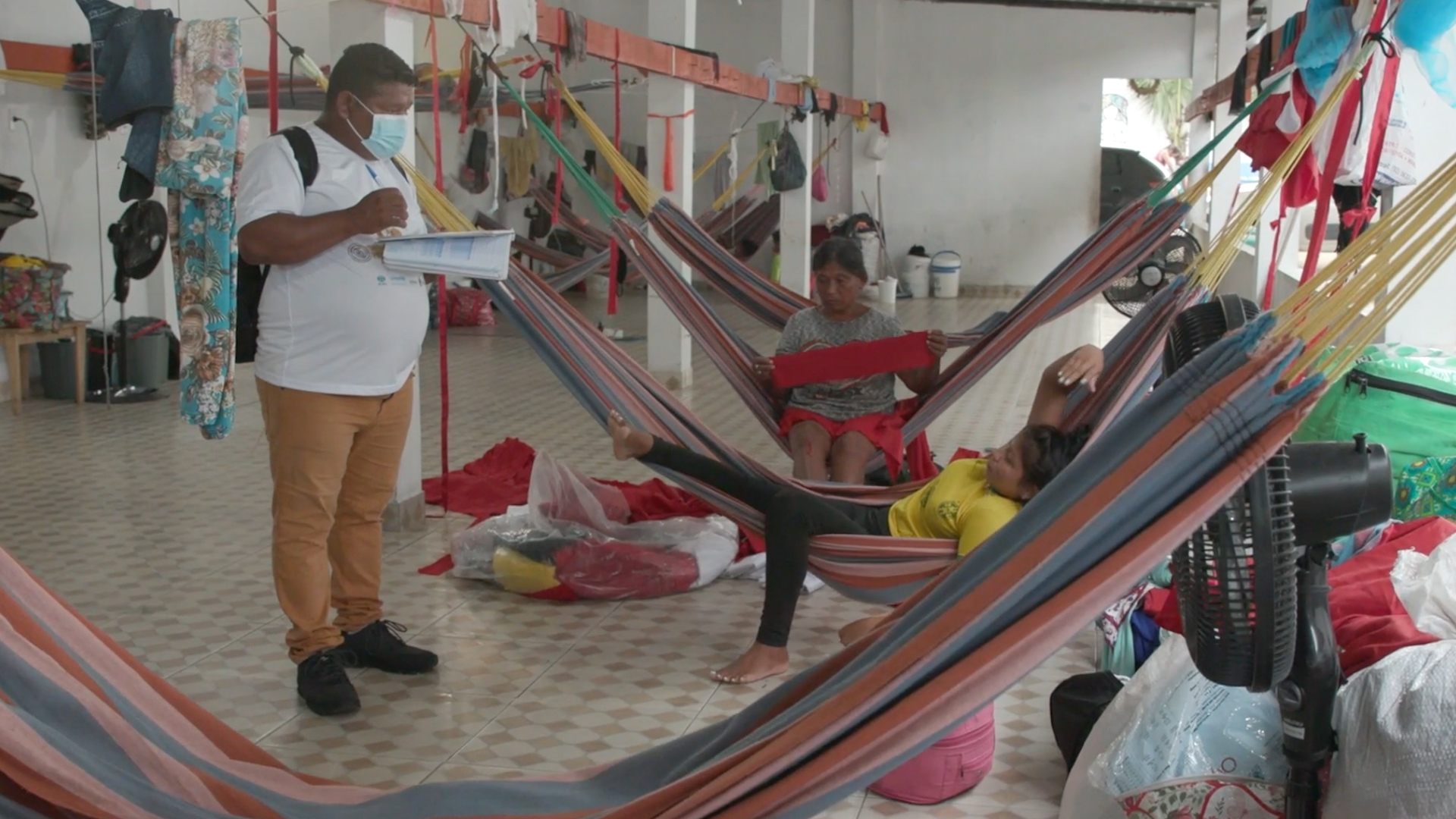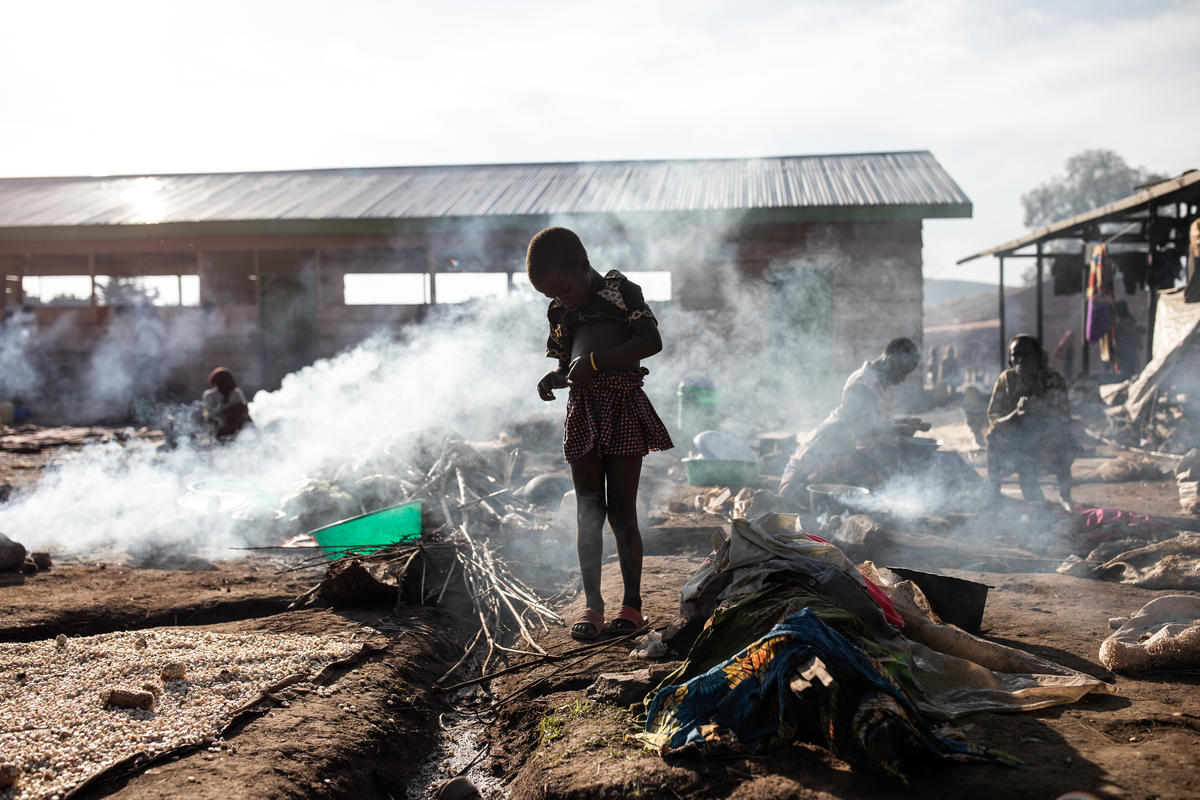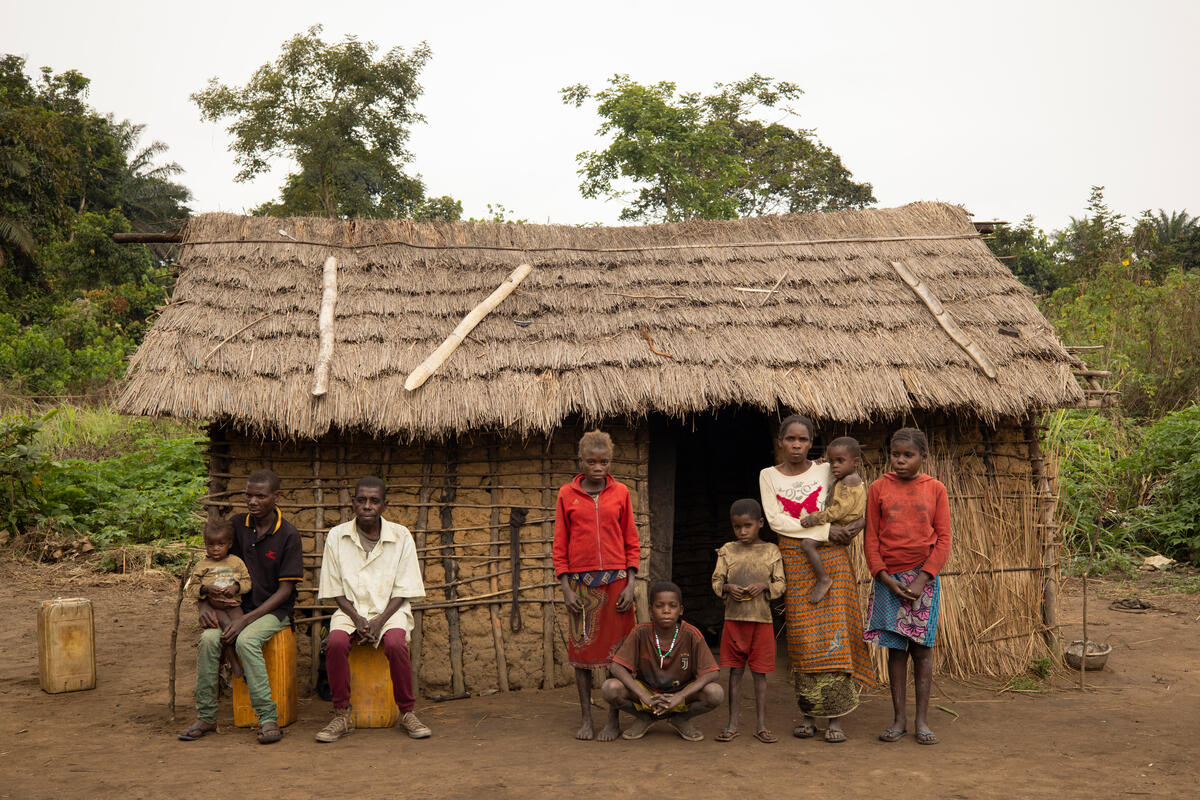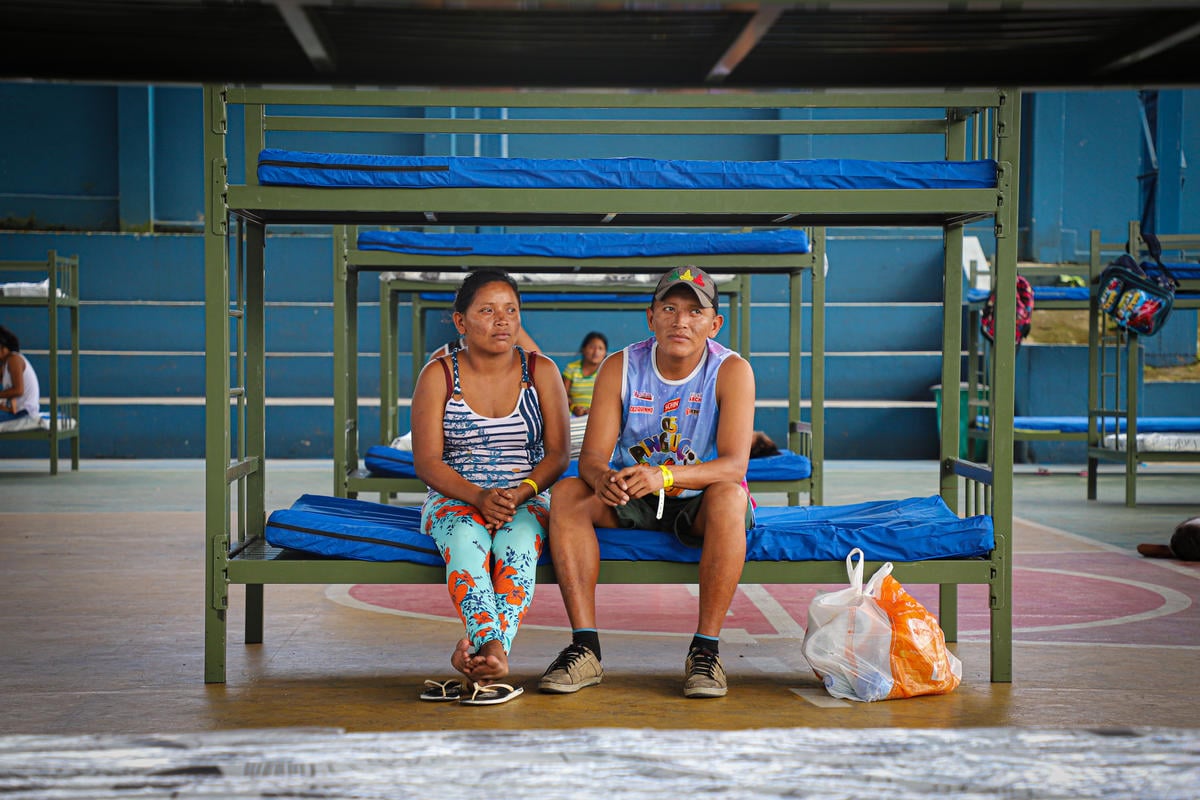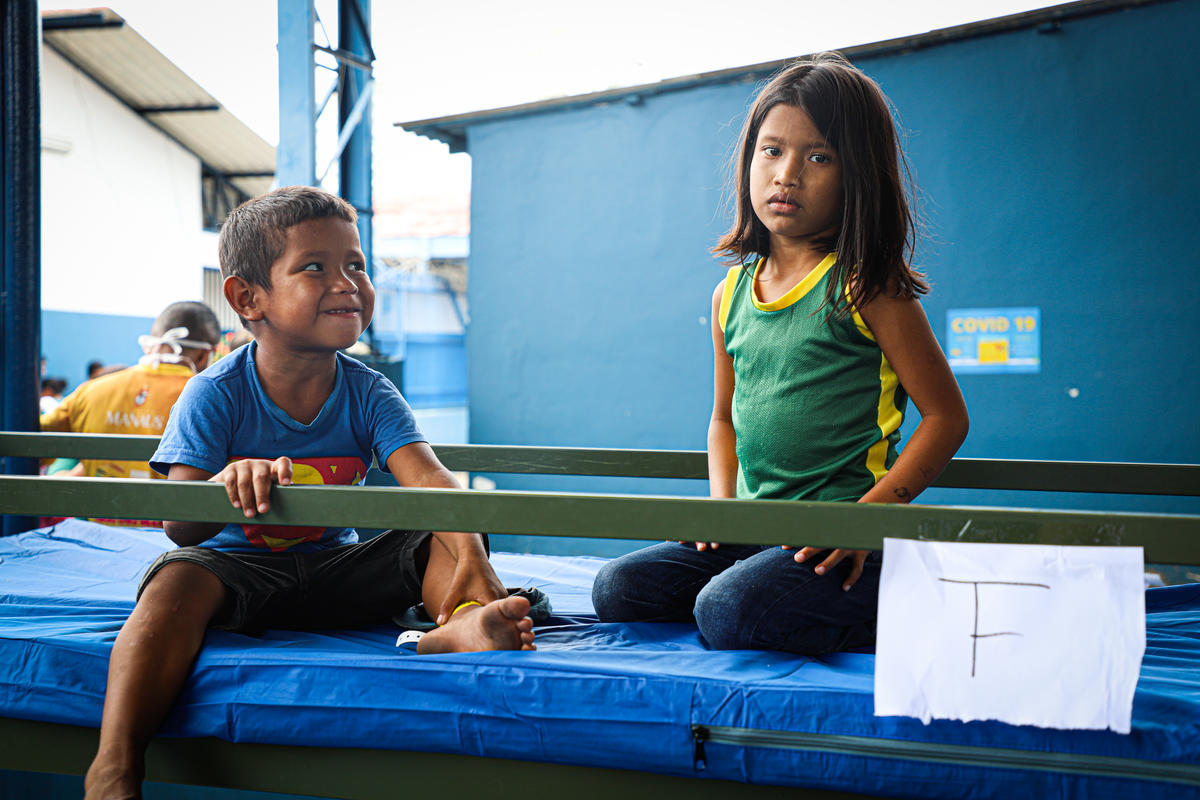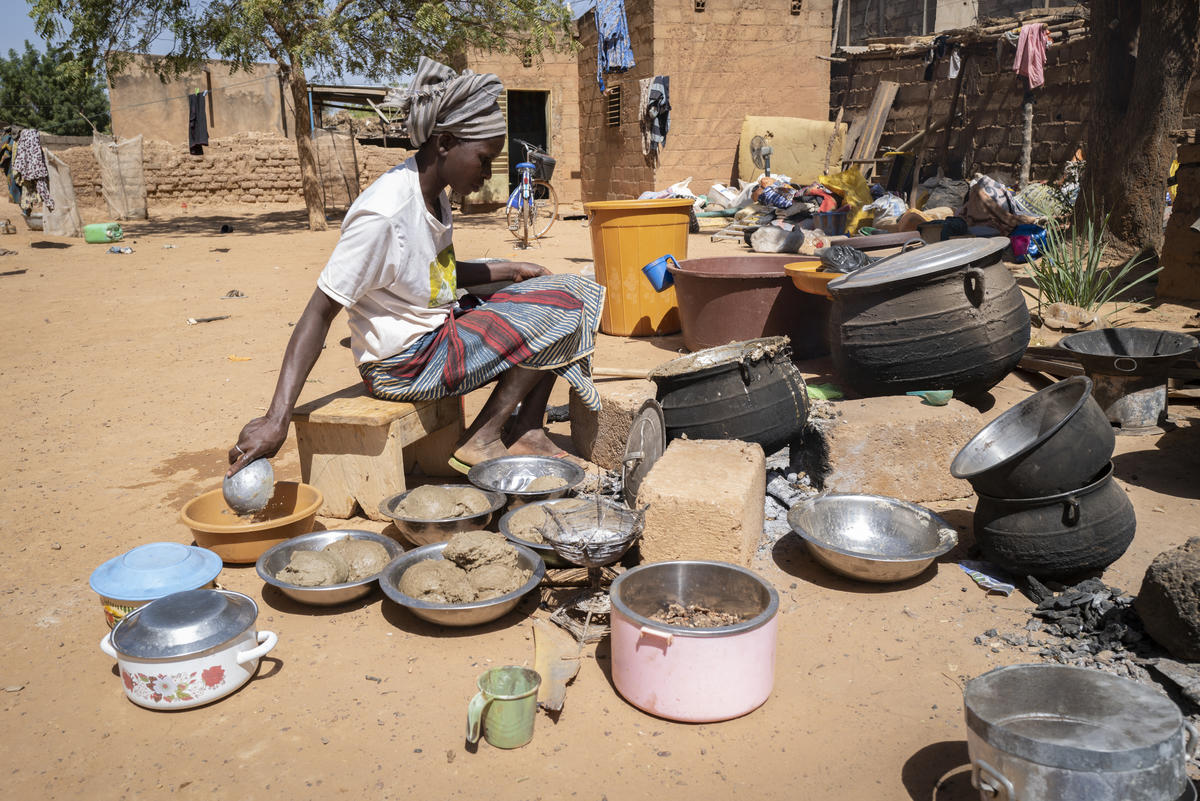Colombia's indigenous Tule people struggle with the threat of extinction
Colombia's indigenous Tule people struggle with the threat of extinction

UNGUIA, Colombia, September 22 (UNHCR) - Among Colombia's many indigenous groups threatened with extinction, few are in a riskier situation than the Tule. There are only about 1,200 of them left in three locations in the neighbouring departments of Choco and Antiquoia in north-western Colombia.
One group of 500 live in Choco's Unguia municipality, a strategically important area on the border with Panama that is abundant in timber, minerals and other natural resources. Unfortunately, these riches have attracted the attention of criminal and illegal armed groups over the past decade.
The tranquil life of the Tule was first disrupted in 2000-2001, when the armed groups penetrated their isolated jungle territory of some 2,350 hectares and went on a rampage of murder, sexual abuse, intimidation and harassment.
Many tribe members sought shelter in Panama or elsewhere in Choco. But a determined core decided to stay, fearing that the tribe would never survive if they left their ancestral lands. "The Tule are an ancient people and their value is that they protect the environment. For this reason, Pab Dummat [the Big Father] gave us this place to maintain and to defend our traditions," Pastor, the community's chief and spiritual leader, told recent UNHCR visitors.
UNHCR has long understood and sympathized with such concerns, and that's why the refugee agency is worried about renewed violence since January between rival armed groups in the Unguia area that has left Tule members traumatized and fearful about the future, particularly the women and children. About half of the community of 500 briefly fled their territory earlier this year.
"I still feel fear for myself, my family and my people. If they don't leave our territory our lives will continue to be in danger," said Pastor's son, Ismael.
Pastor, who also represents the Tule at the provincial level, believes that the tribe must stay in or near their ancestral land and has been working with UNHCR to draw up a strategy to prevent displacement, or at least ensure that the Tule never have to leave their territory permanently.
This strategy includes providing children with access to education while ensuring their safety, and it also entails protecting the land rights of the Tule. UNHCR is supporting the development of the strategy and it has also run human rights courses for officials tasked with assisting indigenous peoples.
But, for now, Pastor and his fellow Tule are worried about the renewed violence on their doorstep since January. They fear the forced recruitment of their young people by the illegal armed groups and they worry about territorial loss, which would affect their ability to cultivate and hunt for food.
Most of all, they fear escalated violence. "These intruders can kill anyone," noted Ismael, when talking about the clashes earlier this year. He said of one occasion that after bursts of gunfire, "an intense and terrifying silence reigned over the village."
And though the fighting has died down a bit, the presence of illegal armed groups has deterred tribe members from straying too far from their homes - and that is affecting their lives.
"Our diet has completely changed. We don´t eat fresh meat or fish anymore. If we eat plantain once a day that is already enough," said one woman. The community members also find it more difficult to access areas where they can find medicinal plants long used by the Tule to treat serious diseases like yellow fever and malaria.
Pastor summed up their plight. "Before the jungle was our jungle. Now we are scared to go inside there too much. Only a few years ago we did not know the meaning of armed conflict and now we are in the middle of it," he said, adding: "We feel like we are in an open-air prison."
But the Tule are not the only indigenous group in Colombia contemplating their future with alarm. Last year, the country's Constitutional Court asked the government to take action to protect the Tule and 33 other tribes regarded as threatened with extinction. It's a task the government takes very seriously.
The endangered groups include people such as the Awa and Embera in Choco, the Eperara-Siapidara in the Pacific coast department of Narino and the Jiw and the Nukak in the Guaviare and Guayabero basins. In recent weeks, violence has led to the displacement of members of the Sicuani in the Orinoco Basin and the Wounaan in Choco.
Aside from violence and encroachments on their land, the indigenous people are also threatened by other factors such as disease brought in from the outside and pollution of water and food sources resulting from coca fumigation. UNHCR wants to see their lands and way of life protected.
"There are several area in which progress is needed in order to improve the conditions of the indigenous [people] in Colombia," noted Terry Morel, UNHCR's representative in Colombia. "The first one is to protect their existence," she stressed.
By Francesca Fontanini in Unguia, Colombia. Gustavo Valdivieso in Bogotá, Colombia contributed to this article.

